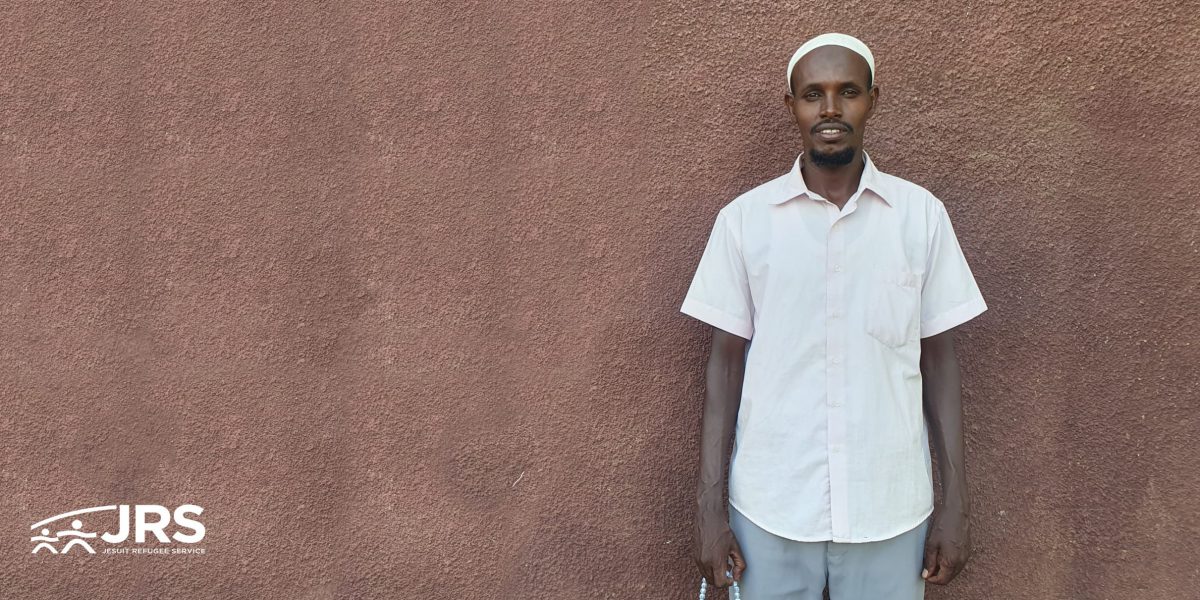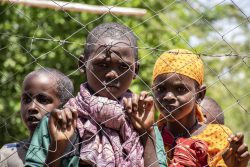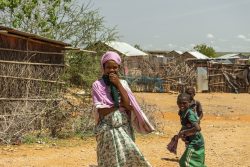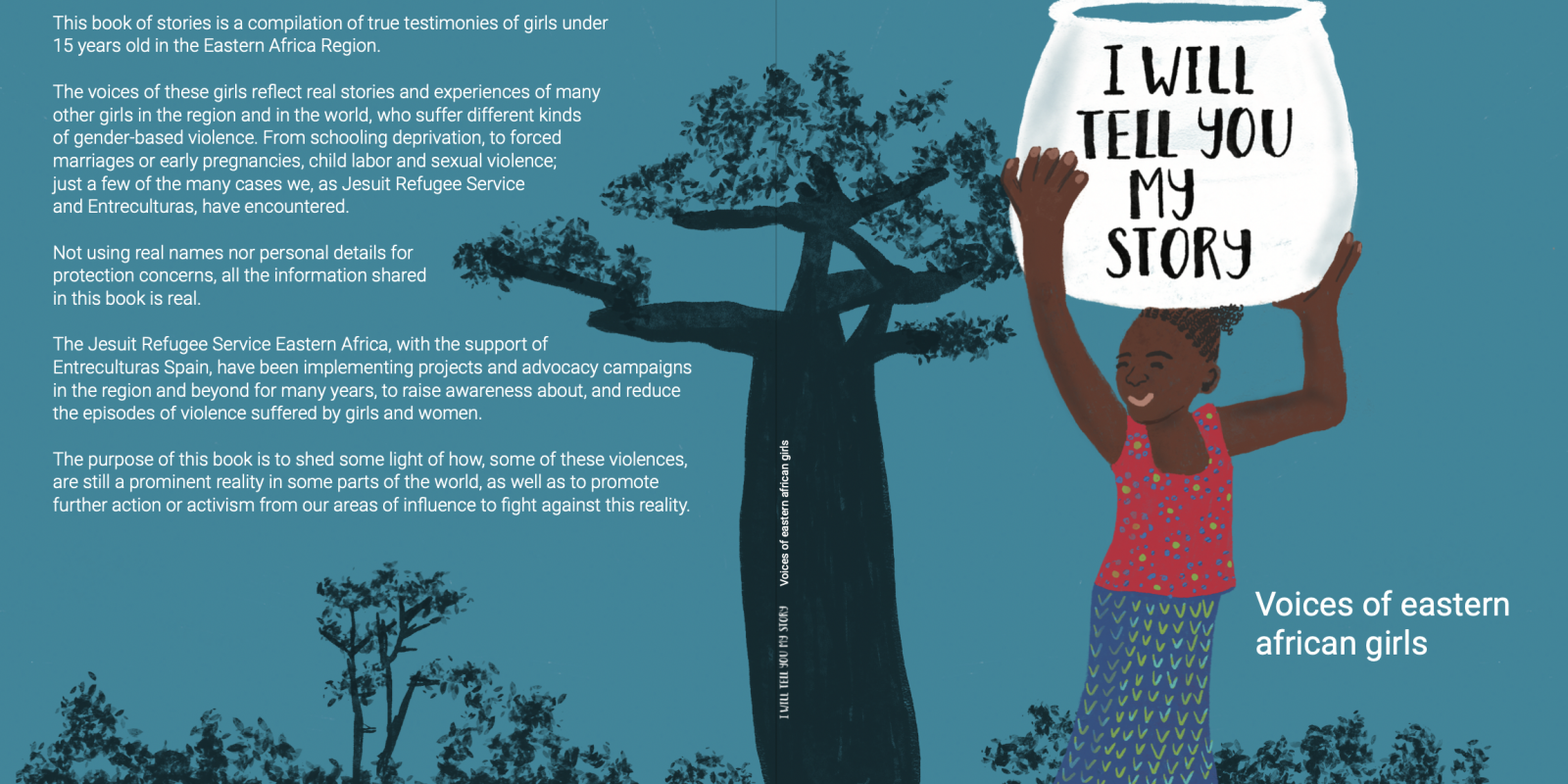Ahmed Shafi Mohammed; A Refugee, Community leader and Conflict resolution worker
14 June 2023|Girum Demissie JRS Ethiopia IT and Communications Officer

Ahmed is 38. 38 years of struggle, hope, hunger and thirst is all he faced throughout his life. Born in Mogadishu, was living with his parents and attending school. But the war that spread overall Somalia couldn’t let him have a peaceful life that he hoped for.
Specially one time he said “I saw with my eyes teenagers like me, dragged from their home and shot just because they are youths and want to have a serene life. And the militants didn’t like them being peaceful and optimistic”.
He continues saying:
That was the only option he had, to flee like his friends and cousins, his mother ordered him to run away by just giving him a few pocketmoney. The only option he had is to travel to Yemen.
“The journey was tough. Being an Immigrant to enter a country irregularly with a smuggler have many risks like of being arrested by local authorities. Even if you try to avoid arrest, you must navigate local political and security dynamics. Certain clan-based communities are largely self-governing bodies and provide their own rules and regulations, and are always skeptical of outsiders, particularly young men, trying to pass through the territories under their de facto control.
Most smugglers have established relationships with these groups, and in many cases, they have a financial agreement with them, and are able to ensure passage without incident.
For smugglers you are just a ‘’Cargo’’ so they always try to squeeze you into a smaller space in trucks, boats and temporary rooms. It’s normal to see rape, beating and people who has left to die in the desert.”
After the long and weary journey with many unimaginable sufferings and disappointment, Ahmed arrived at Marib refugee camp.
 Having a hope to have a fresh start to his future life. Living only day by day as a refugee, getting monthly support from WFP. Even though he didn’t succeed on becoming a permanent resident in Yemen, he met his future wife. But still, they didn’t get the chance to live outside the camp and have a normal life. While still struggling for more than 11 years, Yemen war began and put them both on a despair. So, Ahmed had to relocate again, traveling to Ethiopia, to go back the same route like he did 11 years ago, now with his new born kid and wife.
Having a hope to have a fresh start to his future life. Living only day by day as a refugee, getting monthly support from WFP. Even though he didn’t succeed on becoming a permanent resident in Yemen, he met his future wife. But still, they didn’t get the chance to live outside the camp and have a normal life. While still struggling for more than 11 years, Yemen war began and put them both on a despair. So, Ahmed had to relocate again, traveling to Ethiopia, to go back the same route like he did 11 years ago, now with his new born kid and wife.
“We passed hell together with my family to arrive Ethiopia”
After arriving Ethiopia, he went Sheder refugee camp, a few kilometers outside Jigjiga. Getting monthly support both from UNHCR and RRS for a while. Then later transferred to Dollo Ado refugee camp. Thanks to JRS for the support and training that he got, Ahmed now is a reconciliation and social cohesion worker. He can now properly support his family on their day to day needs from the salary that he makes of being a JRS incentive worker.
“Queues at distribution points, such as the water tap are places where fights break out between women, youth and children. Schools and the football grounds and domestic problems sometimes leads to conflict .”
“Before JRS, it was impossible for refugees to have a peaceful life with the local communities, since the refugees didn’t have a representative, it was impossible for them to voice their thoughts or problems to the local communities and to the local administration, but now Refugee Central Committee (RCC) is the main focal point from the refugee sides, so whenever there is a conflict between locals and the refugees then the RCC organizes the community leaders and the clan leaders to sit together and talk and resolve the conflict issue.”

“Before JRS arrived in our refugee camp, I was one of the focal persons from the refugees’ side, but we were all doing things traditionally, we were only depending on the traditional community punishment methods for resolving conflicts, and those methods sometimes worsen the gap between the local communities and the refugees.
After JRS arrived, we took a training on Reconciliation, which helped us to combine both the traditional with the modern one depending on the level of the conflict and the issue.
“Before the Reconciliation training, we simply jump on in the middle of the conflict, this only adds additional swell to the conflict by making both parties resist to change and increasing the communication gap between them, but after taking the training, we learned that we should give a time to assess and gather information by interviewing each party that involved on the dispute and other communities too. Before that we just simply say “you are wrong and you are right” and directly move on to punishing one side by ordering to bring a camel, a goat or money, but now the JRS Reconciliation training has thought us not to only resolve the issue but also to work for making these communities closer to each other despite of the cultural and ethnic differences that they have.
JRS in Melkadida, Bokolomayo and Kobe refugee camp provides Workshops and trainings with different groups of the community like community leaders, youth associations, women associations and other groups, this helps the refugees not only to introduce themselves to the local communities but also to introduce JRS program to the different communities and also learn from them too.
“Long ago there was a discrimination from the local community sides on the refugees, refugees couldn’t move safely from one place to the other for getting different services outside their camp, but after JRS’s training for communities and social works, it have shown a progress of resolving and minimizing the dispute that used to occur before. Now we are well recognized by both the local communities and the refugees as a conflict resolution worker thanks to JRS and the programs that it runs.”



